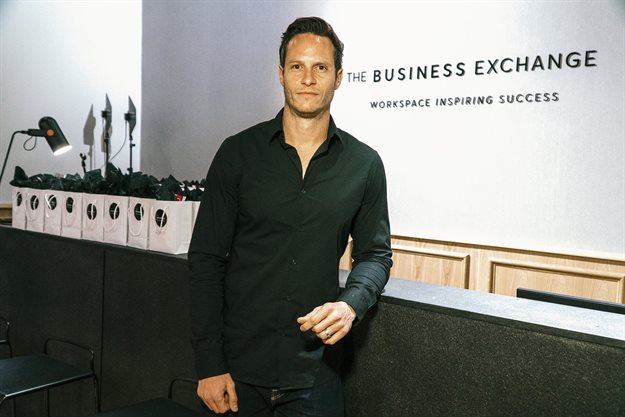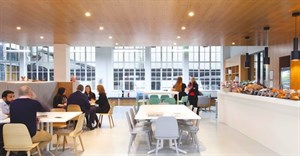Trending
Elections 2024
Will WeWork ever work again?

So, what went wrong at WeWork?
There has been much speculation in the media, from the sudden fall of its nearly $50bn initial IPO valuation to $10bn, and corporate governance concerns surrounding the business and lifestyles of its then CEO Adam Neumann. But what really went wrong is that it didn’t stick to its proverbial knitting. A common business mistake which can take down even the largest of giants.
It definitely wasn’t the company’s business model – providing serviced offices - that took it down. We do that here at The Business Exchange and multinational corporation Regus has been offering the same since it launched in Belgium in 1989. Together with a number of other international brands under the same holding company, Regus is now part of a network of 3,300 workspaces, employing 10,000 people who service another 2.5 million people in over 1,000 cities across more than 110 countries. The model can work.
Positioning as a tech business
The fundamental problem with WeWork is that the company’s top executive team had a plan to see themselves not as a property services business but instead as a technology business, and by positioning themselves in this way, they began raising crazy money from investors at ever-increasing valuations. Valuations based on around 25 times the company’s actual revenue. Investors rejected this blown up valuation, much like they did with true technology businesses Uber which has fallen by 30% since listing.
The company believed it could position itself as a technology business because it housed a lot of tech tenants, as well as the fact that it was developing software to “better understand densities” in its workspaces, and “understanding where people wanted to spend time”. It became all about the app and solutions around the app, with a small army of designers working on it all. The founders had a plan for tech company-type growth and, ultimately, they would have to list to sustain the growth. But the market rejected their valuation, which saw this plan collapse in the end. It’s why when you read about the company cutting staff, it’s the product managers, engineers and data scientists that now stand to lose their jobs.
Rapid expansion
Plus, WeWork expanded phenomenally fast. Having gone through massive growth about three years ago, offices popped up around the globe with the company also looking to expand here in SA at the rate of knots. As it is, the company is already the largest office occupier in New York, and the second largest office space occupier in London.
With former CEO Adam Neumann now having stepped down, and two astute new co-CEOS in Artie Minson (once a senior executive at Time Warner and AOL) and Sebastian Gunningham (who ran Amazon’s marketplace business for more than a decade), the company may well get its house in order. Financial press across the globe agree that the company’s very public IPO may now only be postponed until next year, rather than shelved completely. At a far more realistic valuation, of course.
Strong business model
And it's good news for the industry, should the company survive. Not because of the damage that its folding could do – as I’ve said, the business model is a strong one – but because of the one very good thing it did for the marketplace: it educated it and put co-working spaces on the map, particularly in the corporate world. WeWork did a huge amount of marketing around the concept that it’s far more economical for corporates of up to 100 staff to be accommodated in a more flexible work space - companies can save up to 70% of their lease investment if choosing a flexible office space.
The same applies in South Africa. These days, if a company is looking for anywhere to acquire and fill between 300m2 to 400m2 of space, they’re in for around R3m before they blink, even with a contribution from the landlord. Add to this the fact that there are also new accounting regulations that now require businesses that sign long leases to disclose those leases as liabilities on their balance sheets. This could negatively impact a company’s credit profile, which will concern investors and partners.
To illustrate the power of co-working spaces done right, at The Business Exchange we’ve just welcomed Expedia with a staff of 40 into our Rosebank building, and in the past month alone we’ve had other large corporates making enquiries for space.
Co-working here to stay
The shift towards co-working isn’t coming; it’s already here. It’s been around for some 30 years already, and it’s definitely the future, from single-desk entrepreneurs to corporate clients, but it’s how the business operates and the growth plan that will make or break it. I personally spent five years better understanding the market and what The Business Exchange’s clients really want. As a result, we now better understand the landscape, our competitors, what makes our offering stand out from the rest, and how pricing and deals with landlords need to be structured in order to create a sustainable, scalable and profitable business.
WeWork focused on revenue and ridiculous growth, like all other tech start-ups do, and, as we can see, that plan failed. There is a lesson to be learnt here for all start-ups. Yes, deliver excellent value at the right price, but in the end, you need to focus on fundamentally sound business goals that drives revenue - you can’t promise to be the next unicorn in an industry and not have sound business goals that drive revenue at the right price. That’s just not good business sense.















